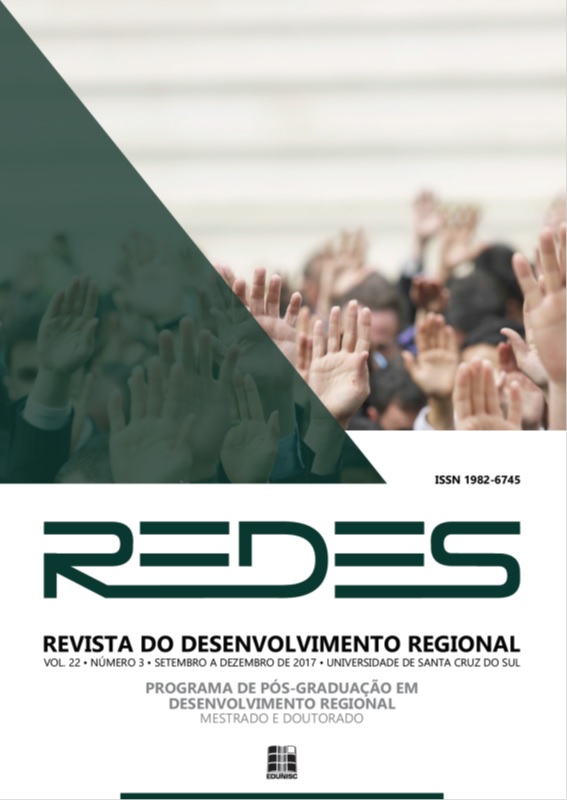Innovation in Brazilian territorial association: the educational development arrangements
DOI:
https://doi.org/10.17058/redes.v22i3.10408Keywords:
Territorial association. Education. Innovation in subnational governments.Abstract
The article analyzes the Development Educational Arrangements as ways of territorial association which, in Brasil, since the 2000s, have been one more alternative for municipal consortia. The object of analysis is formed by two cases: the Corredor da Vale (Maranhão) and the Chapada Diamantina (Bahia). The research was implemented based on secondary data and a field investigation that interviewed educational municipal managers and representatives from state governments. The selected cases were based on the diverse case methodology that analyzes, controlling variables, different effects of independent variable over dependent variable. The central argument tested is that Educational Arrangements are the independent variables that produce effect on educational territorial governance like dependent variable. We concluded that the larger success in baiano case it was due to factor like regional leadership, social control, path and context of its construction, what didn't happen in the maranhense case.Downloads
Download data is not yet available.
Downloads
Published
2017-09-06
How to Cite
Grin, E. J., & Abrucio, F. L. (2017). Innovation in Brazilian territorial association: the educational development arrangements. Redes , 22(3), 39-64. https://doi.org/10.17058/redes.v22i3.10408
Issue
Section
Políticas públicas e território: atores, redes e arranjos institucionais



